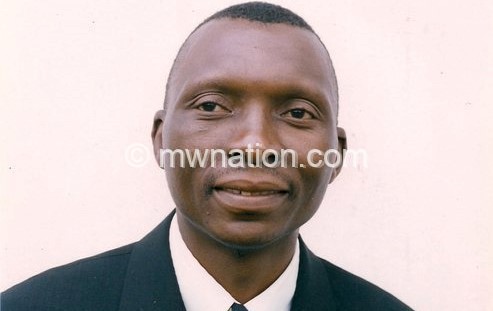DPP swallowing PP—experts
The conduct of PP legislators during the vote on the Electoral Reforms Bills is a statement, analysts say, that DPP is swallowing the party to consolidate its power ahead of the 2019 polls.
While there was public expectation that opposition political parties would gang up to support electoral reforms, People’s Party (PP) surprised many when some of its members voted ‘no’ to the Electoral Reforms Bills, abstained or were absent during the voting, leading to speculations that the party connived with the Democratic Progressive Party (DPP) to frustrate the reforms.

This also follows an audience some of the PP parliamentarians had with President Peter Mutharika, a development our sister newspaper The Nation revealed.
In an interview with Nation on Sunday on Saturday Chancellor College–based political analyst Ernest Thindwa said PP’s conduct in the just-ended meeting of Parliament makes it clear that the party is ‘swallowed’ by DPP, “which is desperate to have full control of the entire Southern and Eastern regions”.
According to Thindwa, DPP has taken advantage of lack of leadership in PP, adding that the more Joyce Banda stays outside the country, the more the party nears its death bed.
“DPP is being strategic. They do not want to have the Southern Region vote split and that is why they roped in UDF. I would like to speculate here that UDF is unlikely to field a candidate in 2019 because DPP would not want the Southern Region vote split. On that, they would really like to have both UDF and PP to rally behind them,” he said.

Thindwa further blamed the status quo on PP’s lack of leadership.
“You need to have a leadership that can guide the conduct of the party in Parliament. Unfortunately, in the absence of a recognised leadership, that is why you have the membership going into a vote with a split mind,” he said.
Another political analyst, Augustine Magolowondo, also said PP is in a state of disarray, largely due to the elongated absence of the party president. He said the conduct of PP in Parliament is a serious disservice to the nation which has been looking forward to electoral reforms.
Magolowondo wondered whose interest parliamentarians represent as the Special Law Commission consulted widely on the reforms and that the Bills proposed reflected the wish of the people.
“To me, what the DPP is doing is not surprising. That is what any political party or politicians would want to do. It depends on PP to demonstrate their clear position of what they stand for. The fact that we have the leader of the party outside [the country] for so long, means in a way that the party lacks leadership, which other parties have taken advantage of,” he said.
Former speaker of Parliament Sam Mpasu said the debate in the National Assembly has provided a fertile ground to conclude that, like the UDF, DPP is set to drop PP in its laps.
He also said the conduct of some MPs in PP—to side with DPP on electoral reforms—could be an issue of money changing hands.
But, in separate interviews, both PP leader in the House Ralph Mhone and spokesperson Noel Chimpeni, parried assertions that the party was being swallowed by DPP.
Mhone, while acknowledging that it was strange for some of their lawmakers to go against the party stand on the electoral reforms and side with DPP, stressed that the party is not divided.
Asked to explain if there is a connection between the meeting between President Mutharika’s meeting with some PP MPs, and the support towards DPP, Chimpeni said the support for DPP is more of an individual’s decision than a party one.
He also parried claims by former PP leader Uladi Mussa that the DPP was in a working relationship with PP, saying Mussa was a mere party member who cannot speak on behalf of PP.
Pressed on why some parliamentarians went against the party’s stand on the electoral reforms, Chimpeni thinks the individual legislators, want favours from the ruling party.
Apart from voting ‘no’, and at some point abstaining to vote on the electoral reforms in Parliament, PP chief whip Ralph Jooma resigned from his position for personal reasons.
Three weeks ago, former PP leader Uladi Mussa attracted headlines for showering praise on Mutharika for successfully implementing the national ID programme—a complete change of heart from his earlier comments that branded the exercise as a ploy to rig elections.
Since, then, Mussa has had a soft voice on the leadership and supported the DPP to reject electoral reforms.
Efforts to get comments from DPP spokesperson Francis Kasaila proved futile as his mobile phone could not be reached. But the party’s Leader of the House Kondwani Nankhumwa is on record as saying the said PP parliamentarians are just exercising their democratic right.






This is why we need all these old politicians to go away from Malawian politics for good, they are taking us for granted ……kuteroku timilandu ta Uladi Mussa tija tikhudzana ndi ma passport tija tathera pomwepa becomes of this so called working relationship betweeen DPP and PP.
Malawians please wakeup, never vote for these greedy people……..these politicians are just using our votes to make ends meet at their homes and not to serve our country.
We have Dr Muluzi whose corruption case is getting no where becoz obviously his son is serving in the current govt
We have the previous agriculture minister Mr Chaponda whose case will shortly be thrown out of court on technicalities becoz he is obviously part of the ruling elite the Muhlakho wa a lomwe.
Now this, Uladi Mussa who the govt said had a case to answer on a syndicate that was issuing passports and citizenship to foreign nationals but now the same govt is forming a working relationship with him and his party ……..enough is enough, we need to get these criminals out of govt once and for all